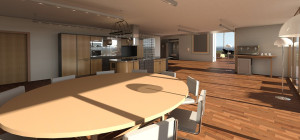 Whilst property is a lucrative business, nobody rose to the top without being wise about their investments. At some point in time, everyone is tempted by the idea of simply ‘doing up a house and selling it for a huge profit’. However, it is not as easy as it sounds.
Whilst property is a lucrative business, nobody rose to the top without being wise about their investments. At some point in time, everyone is tempted by the idea of simply ‘doing up a house and selling it for a huge profit’. However, it is not as easy as it sounds.
With the majority wannabe property pundits failing to make a return on their first investment, it can be wise to clue yourself up on the ways you can save yourself some money. From square footage to furnishings, be shrewd with your budget and make some savvy money saving decisions.
Do It Yourself
Whilst not all of us are blessed with the skills for home improvement, more and more property developers are saving money on builders and tradesmen by taking on some of the practical work themselves. We agree that demolition and electricity installation is best left to the professionals, but if you’re a dab hand at laying lament flooring or don’t mind hours of painting you can definitely save a chunk of cash.
Consider Shrinking
If you’re considering extending the property you are developing, remember the golden rule of more square footage will cost you more money. Whilst you will want to balance this out by considering the resale value if you don’t plan on living in the property, cutting back a few square feet here and there can save a lot of budget.
Cutting back on space doesn’t mean tiny rooms. More often than not, when initial plans are drawn up for extensions, people often think bigger is better. Some developers have seen savings of nearly £3000 by shaving just two to four feet off of a room. This frees up budget to save for a rainy day or invest in another addition, like a garden patio or new kitchen units.
Internal Doorsets
Many property developers are surprised at the cost of front doors, particularly when kitting out apartment blocks or hotels where everything needs to be uniform. Doors aren’t just a one-off spend, you then have to purchase the frame, hinges, latches and locks that makes them fully functional, and this can add up.
If you are seeking an affordable front door option for apartments or hotel rooms, internal doorsets could be the money saving answer you seek. Internal doorsets are pre-assembled, meaning you get everything needed to have an operative door in one kit. Internal doorsets can also be manufactured as fire doors and the fact that they are pre-hung and ready to install means quicker fitting times and a reduction in onsite costs.
Buying In an Up and Coming Area
Properties with poor transport links or lack of local amenities are always going to sell at a discount. These are to be avoided! Equally, homes located in popular areas will already have a premium price tag and you are less likely to make a sizeable return if you are developing on a specific budget.
Although it can be difficult to predict, investing in property in up and coming areas can see you sell in the future for much more than the purchase price. This is particularly effective when developers invest in properties in these areas which need revamping.
Don’t Scrimp on Quality
This might sound counter-intuitive, especially to new developers in the industry, but opting for cheaper finishes is something to avoid. Whilst faux versions of oak floors and granite kitchen counters will save you money in the now, you can rest assured potential buyers will notice it immediately. Furthermore, if you decide to let the property as opposed to sell, you will definitely need to fork out to replace those cheaper finishes in the future; something which could have been avoided by investing in the beginning.
Claim Back VAT
Depending on your circumstances you may be able to claim back VAT on the material and labour used to develop your property. Although this isn’t a way of saving money in the first instance, it is a fantastic way to put some money back in the pot towards the end of the project.
If you want to make a VAT rebate claim, it must be done within the three months after a development is completed. You can claim against almost any services or materials purchased from a VAT-registered supplier which have been used in your project. However, this does not extend to carpets, professional services, white goods, furniture etc.







